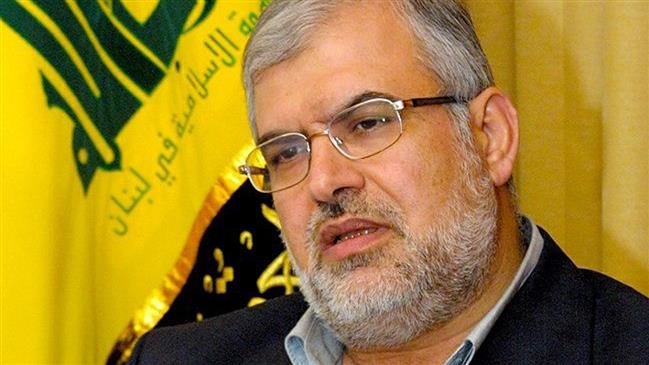
RNA - “Those who hinder the formation of our government are the same who previously held our prime minister captive,” Mohammad Raad said during a ceremony in Lebanon’s southern city of Nabatieh on Monday.
Saad Hariri stunned Lebanon and the world on November 4, 2017 by announcing his resignation in a live television broadcast from Saudi Arabia. He accused Iran and Hezbollah of sowing strife in the Arab world, an allegation rejected by both sides.
Senior sources close to Hariri and top Lebanese officials said Riyadh had coerced the Lebanese premier into stepping down and put him under house arrest.
Lebanese President Michel Aoun stressed back then that the prime minister was being detained in Saudi Arabia against his will.
Sayyed Hassan Nasrallah, Hezbollah's Secretary General, also noted that Saudi authorities had clearly and openly declared a war on Lebanon by holding Prime Minister Hariri hostage and forcing him to quit.
Raad added, “The time has come to shout and say that a government must be formed ... by the will of the nation’s people and the will of political forces.”
“How can we secure our sovereignty if we can’t form our own government unless we can lift the veto of those disrupting the formation a new government from abroad?
“Lebanese people are involved in the formation of government. They must block all obstacles ... [including] those obstructing the formation from abroad,” he noted.
Lebanon's first parliamentary vote in nine years was held on May 6, with over 500 candidates vying for seats. Turnout was 49.2 percent, according to officials.
According to official results, Hezbollah and its political allies secured over half the seats.
Hezbollah as well as groups and individuals affiliated to it won at least 67 seats in Lebanon’s parliament, according to the results cited by politicians and campaigns and reported in Lebanese media.
According to Press TV, Hezbollah's allies include the Amal Movement led by Parliament Speaker Nabih Berri and the Christian Free Patriotic Movement founded by President Michel Aoun.
The parliamentary seats are split evenly -- 64 for Christians and 64 for Muslims, including Druze, with the two halves further divided among 11 religious groups.
Hariri has called on political parties to “show modesty” in their demands regarding the new government, emphasizing that he is not responsible for the serious delay.
“They are blaming me for the delay whereas each party is clinging to its stances and demands,” he told reporters on August 7 ahead of a meeting for the al-Mustaqbal parliamentary bloc.
“Everyone must display modesty and sacrifice for the sake of the country,” Hariri pointed out.
Political rivalry led to years of governmental paralysis in Lebanon, and the country did not produce a state budget from 2005 until last year.
The International Monetary Fund has said that Lebanon must urgently address its fiscal policy in order to sustain its high levels of public debt.
847/940